
Writers













Annually, this issue celebrates women who have achieved s u c c e s s i n s c i e n c e , technology, engineering, math, and medicine (STEMM).
In this edition, we are highlighting Me'lani Labat Joseph, Principal of Transformative Innovations, LLC. Me'lani is a Massachusetts Institute of Technology (MIT) trained mechanical engineer. She is unique because while still studying for her degree, she decided that a career as an engineer was not in her future.
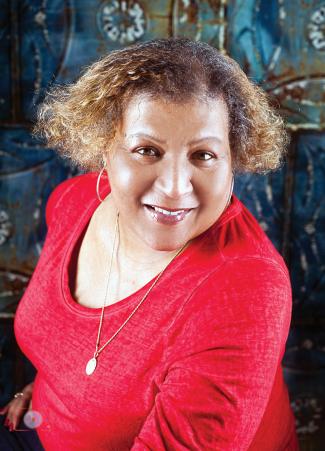
During my conversation with her, she spoke of great internships offering insight into the world of engineering when she realized the indoor cubicle world was not something she looked forward to experiencing. Instead, she wanted to be outside developing relationships to improve the community.
Following her heart has served her well in her professional career For more than 24 years, she has used her innate abilities in math and science and her love for the community to advance the need for diversity in STEMM learning and careers. From Chicago to Cleveland, she has worked to change lives and make a difference. She said that her work has focused on small projects impacting a few, but her work today is designed to reach the masses.
Me’lani was commissioned by the Cleveland Foundation and the Nordson Corporation to prepare a landscape analysis of the key science, technology, engineering, and math providers in Greater Cleveland and Lorain County. The report created from this analysis serves as a blueprint for area families, STEM providers and stakeholders, educational institutions, communities, civic leaders and businesses to focus on while working to diversify these fields. Please check out our feature to learn more.
Have you ever struggled with determining your next move or launched a new project only to have it fizzle out before it started? If these scenarios sound familiar and you need
inspiration, the feature on Arlet Wright, Director of Thwing Center Engagement & Operations at Case Western Reserve University, is a must-read!
Wright, left her home in Detroit to start over after her first try at attending college didn't go as planned. As a first generation college student she was forging the maze of higher education without any advisors paving the way when she faltered twice. First at home, and later when she moved to take part in a project with Job Corps Cleveland and Cuyahoga Community College. The two-year program promised an Associate degree upon completion. While this wasn't the outcome she hoped for, it did lead her into a job that would change the trajectory of her life.
Reflecting on her journey, Wright champions the need of a good support system and being persistent. Her story is one of perseverance, so be sure to read how she successfully navigated the higher education system as a mother, wife and full-timeemployee.
Columnist Marsha Eastwood, our resident financial advisor, offers her view on financial anger. Who knew there was something called “financial anger,” I know I didn't. I'm very familiar with being angry at myself or someone else because of poor financial decision making but to read that it could really be an emotion was intriguing. Not only does she explain it, but she offers a plan of action to overcome this anger. If you believe your financial issues may be based on this anger, you should definitelyread this column.
As with each edition of Phenomenal Woman, our goal is to offer a glimpse into the lives of women who despite the many challenges they face have found a way to live, and thrive. That is the vision we have for all of you, so please take something from these phenomenal women and begin to thrive! While you're at it, grab the hand of another woman and pull her up with you.
Until next time, Be Blessed, but most importantly be a blessing!
MetroHealth Names Dr. Airica Steed as New President and CEO
Phenomenal Woman recently spoke with Arlet Wright, Director of the Thwing Center Engagement & Operations at CWRU, to discuss her role with the Student Centers and her amazing career She explained, “Our main function is to take an event and make it come to life. We try to think creatively to assure that the student programs as well as department and outside organizations are featured in a way that will bring pride, spirit, and is welcoming to all at CWRU ”
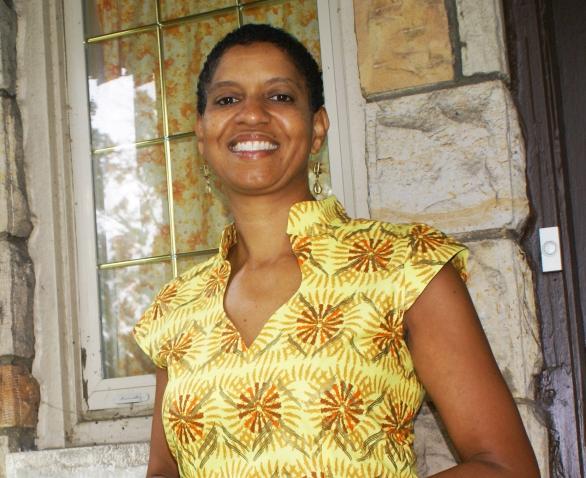
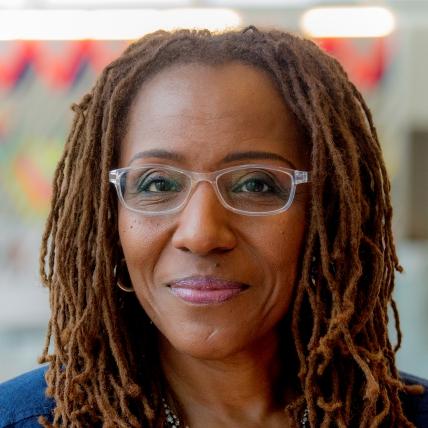
Principal of Transformative Innovations, LLC. Labat Joseph is a Massachusetts Institute of Technology (MIT) trained mechanical engineer with a mind for STEM and a passion for bringing out the best in Black and Brown people. MIT, well positioned among the world's most prestigious universities, is currently ranked #1 for best undergraduate engineeringprogram.
Me’lani Labat Joseph’s life illustrates the importance of following your heart and passion when choosing your career. The early experiences in her life shaped her collegiate choices while ultimately allowing her to shift her focus as she began her career.

God grant me the serenity to accept the things I cannot change, the courage to change the things I can, and the wisdom to know the difference.
Introspection is often a painful look at our faults, weaknesses, insecurities, and loss of faith in self. I grew up in an incredibly unique environment. I grew up in a rooming house that best described as a large sardine can packed tightly with so many people there was barely room to breathe. My great aunt was the owner, and my family was among the tenants. Having survived the Great Depression, she was an expert at managing money. She supplemented her rental income with a job as a domestic worker. I remember accompanying her many times to the bank to make deposits.
By: Marsha Walker Eastwood, BsEd, MSHSVC PWM Contributing Writer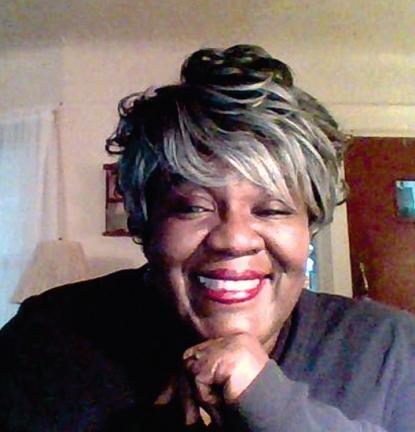
My parents both worked. My father was a shipping clerk, and my mother was a nurse. I had three siblings, and we were compacted into first one bedroom, then two bedrooms, and finally three to accommodate my brother. Our beds had one sheet apiece and we had to share two towels. There was never enough of anything -food, clothes, or personal care necessities, and even though my parents paid no rent, they rarely seemed to have two nickels to rub together.
The older I got the more I realized the dichotomy My aunt was frugal. My parents were not. As we went without clothing and shoes, my parents had closets filled with expensive clothing. They met their friends for expensive nights out, served expensive liquor when they had guests, and drove an expensive car. I developed financial anger at an early age. I later learned that extravagance and fiscal irresponsibility would lead to a crisis of sorts when my father's paycheck was garnished for several missed payments on the charge card. He didn't know my mother had purchased several expensive dresses and hats “to look nice like all the other ladies” at a Billy Graham crusade.
That discovery led to a prolonged period of yelling, cursing, threatening, pushing, shoving, hitting, open hostility, resentment, and outrage. My childlike anger at not having the necessities of life paled in comparison to his display of anger and frustration. That anger and frustration was the result of his perception of being underpaid, coupled with extreme self-indulgence for fear of ostracism bytheir own circle of “friends.”
As a teenager, I began to see further examples of financial anger. My next-door neighbors argued every day and the
proximity of the houses made me privy to their conversations. Each one was about money or the lack thereof. The couple lived with the wife's parents rent-free. The husband worked parking cars, and the wife worked as a political campaigner. The woman's father would preach in the street about how he was drowning in debt supporting his daughter and his n'er dowell son-in-law They had four children, lived in cramped quarters, and did not own a car Once again, there was an example of never having enough.
What became blatantly obvious was that so many of the emotions we experience early in life such as anger and bitterness become two of the main driving forces that have the most significant impact on how we manage our day to-day decision making. Those two emotions are often responsible for rash and irresponsiblefinancialdecisions.
The causes and effects of fiscal irresponsibility can be attributed to a flawed multigenerational belief system where generation after generation handle money decisions just as those who came before them. The overly self-indulgent feel they are entitled to the good life because they have “suffered enough” from doing without. From extravagance in the form of throwing “lavish” parties to impress people, to extreme frugality where money kept instead of paying a bill or getting a much-needed repair of something, the results are usually the same. The anger, frustration and guilt continue to build until there is a breaking point. That point could come suddenly or in steps where all warning signs such as shut-off notices, late mortgage or rent payments, share the same results.
Today, it is difficult for anyone not to feel financial anger Inflation is deflating the average wallet, depleting bank accounts, and devaluing 401K plans, and what once was a good investment for retirement is now questionable as the stock market reacts badly to Fed rate increases, pending strikes, and loss of business revenues. Credit cards are being used like debit cards, except there is no money to back them. Then there are the “under the wire” credit opportunities – the buy now, pay later companies that can create an almost instant overload when a job is lost, hours are cut, or the daily grind of doing whatever it takes to keep the roof over the head and food on the table. It is easy to see why so many people are treading water, almost underwater or layering debt to survive. No matter what the situation is, there are ways to mediate the anger
The best way to fight financial anger begins with a plan, and the first step in the plan is acknowledgment of the
problem followed by taking ownership of the problem. Afterall you cannot solve the problem by placing the blame on others. Step two is to make a detailed itemized list of all expenditures and highlight the ones that are priorities and using a different color highlight those that were paid using a credit card including those buy-now-pay-later accounts. Remember debt is a mortgage on future income. The more debt, the less future income. The less income, the less ability to make on-time payments. More missed payments equals, a higher number of late payments fees and increased interest. Next, take a long hard look at the number of impulse purchases - you know those tempting, but unnecessary items that line the checkout lanes. Finally, look at all income sources after paying just the minimum on each account. How much is left for the essentials of daily living? If the amount is a negative, it is time to breathe and reassess your financial behavior, not research loan opportunities.
No matter the plan, you must accept the fact that major behavioral changes must take place. A budget overhaul is necessary. For most people this will be the painful part, but you must be ready to begin cutting out anything that is not a necessity. If you can get your recurring monthly expenses lower, you will have less difficulty paying your bills. Explore checking account options. Many banks offer free checking and waive overdraft fees. This is a necessity because it is more difficult to get a new account if you get into the Chex Systems for abandoning an account with a negative balance.
Look at your checking account(s) on the first and fifteenth of the month. For example, if income hits your account on
the first of the month, try to schedule electronic payments on the fourth or fifth to make sure your deposit has cleared. If you have credit cards, ask the bank for a lower interest rate. If they decline, ask if you can switch your card to a rewards card, which gives you money back at the end of the year for purchases made with the card.


Cable TV can also put a strain on your budget. Do you really need all the channels? If there are those that can be bundled to lower the cost, then do it! Cell phone companies are notorious for upgrade offers. Do not bite the carrot. If your phone is functional, there is no reason to get another one. This is also another opportunity to save money bybundling.
For those prone to extravagance, one important piece of advice I can give is to say NO! No to a nice steak dinner when you have a fast-food budget. No to buying every member of your family expensive Christmas or holiday gifts. No to buying a name brand shirt or dress from a high-end retail store, instead try a resale or consignment shop Keep the food budget simple and the offerings as well.
Once you create the plan, and stay true to it, you will begin to see changes-small at first but worthy of an attaboy, nonetheless. Celebrate you with a smile and a glass of sparkling water in a champagne flute. Moreover, always….remember the message of the Serenity Prayer listed at the beginning of this narrative. You can fix your anger by fixing your finances, but the world and your financial situation will never be perfect, so learn, too, to accept it and live happily. <
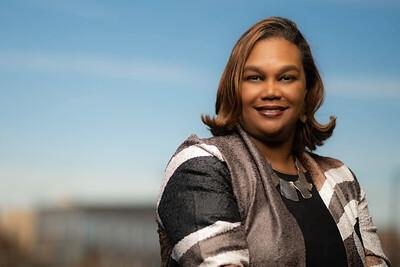
The Board of The MetroHealth System announced that after a nationwide search it has selected Airica Steed, Ed.D , MBA, RN, CSSMBB, FACHE, IASSC, to be its next President and Chief Executive Officer She will succeed Dr Akram Boutros, who announced late last year that he planned to retire at the end of 2022. She will assume the position on January 1.
Dr Steed is currently Executive Vice President/System Chief Operating Officer of Sinai Chicago Health System and President of Mount Sinai and Sinai Children’s Hospital. Much like MetroHealth, Sinai Chicago is an urban academic healthcare system focused on health equity and eradicating healthcare disparities. It is comprised of four acute care, post acute and specialty hospitals, a nationally recognized research institute, and large multispecialty medical group with 800 physicians and 4,000 caregivers serving 1.5 million patients throughout Chicago Mount Sinai & Sinai Children’s Hospital, the System’s flagship, is an acute care safety-net, teaching hospital, Level III Perinatal Center, and Level I Adult Trauma Center. Sinai Chicago’s flagship recently opened a new ambulatory campus that features a state-of-the-art
facility that integrates healthcare with retail and housing to address the social determinants of health.
“Dr Steed’s capabilities, character and experience are a perfect match for the qualities we wanted in our next CEO,” said MetroHealth Board Chair Vanessa Whiting, who is president of A.E.S. Management Corp. “She comes from a major safety-net healthcare system that shares a similar focus to that of MetroHealth: improving the health of the community in an urban, academic setting. Airica has been successful in improving quality of care, patient satisfaction, operating results, and health equity. She also has a deep history as an innovator and as a community collaborator who builds strong relationships among partners, both of which will continue to be important to our success.”
“We were fortunate to have several excellent candidates for the CEO role,” continued Whiting. “The Board was unanimous in the belief that Dr Steed was the right leader to take MetroHealth forward, particularly as we open The Glick Center, our new hospital, and to increase our impact on our community’s health.”
Steed. “MetroHealth has done an incredible job in developing a patient-centered, whole-system approach that aggressively targets health equity and has a bold and unapologetic focus on eradicating healthcare inequities. The Board, Dr Boutros and the MetroHealth team have put the system in an incredibly strong position, with great opportunities ahead. I’m excited to have the chance to work alongside them to build on what’s been accomplished and further develop and build on that work into the future.”

In her role at Sinai Chicago, Dr. Steed architected and led a multifaceted clinical, operational, financial and cultural transformation that accumulated over $200M in improvements over three years while radically improving publicly reported quality indicators and reducing hospitalacquired infections and mortality rates by 40 percent. She also serves in several academic positions, including the University of Illinois School of Public Health, and holds key board positions including at the Loyola University Chicago Quinlan School of Business and inaugural board seats on both the South Side Healthy Community Organization and the West Side Health Equity Collaborative. Dr. Steed is a proud fourth-generation nurse and brings a clinical perspective through her work as a nurse throughout her career
recognized In op

25 Healthcare Innovators,” and last year included her among the “Top 25 Minority Leaders.” She is also named by Becker’s Hospital Review as one of the “Top 130 Women Hospital & Health System Leaders to Know” and “75 Black HealthcareLeaders to Know ”

Prior to joining Sinai Chicago, she was Senior Vice President, Operations at Presence Health; Chief Experience & Administrative Officer at University of Illinois Health System – one of the first chief patient experience officers in the country; Vice President, Clinical Operations and Professional Services/Operations at Advocate Health System, the largest integrated health system in Illinois; and a Senior Consultant and Engagement Leader at Pricewaterhouse Coopers.
She has a Doctorate of Education in Leadership from Olivet Nazarene University, a Master of Business Administration from Governors State University and a Bachelor of Science, Nursing from Rush University She is also pursuing a Master's in International Relations with a focus on Healthcarefrom Harvard UniversityExtension School.
My mission in life is not merely to survive, but to thrive; and to do so with some passion, some compassion, some humor, and some style. MAYA ANGELOU
Case Western Reserve University (CWRU) the top ranked university in Ohio stands as one of the best research universities in the nation. Founded in 1826 in Hudson, Ohio as Western Reserve College, it moved in 1882 to “uptown” Cleveland, where it lives today, and assumed the name Western Reserve University later joining with Case Institute of Technology to form Case Western Reserve University
Thanks to its extensive research programs, the University thranks 18 worldwide in innovation and its' researchers have received numerous awards and accolades for their extraordinary services. The University hosts carefully designed programs and events that benefit students, faculty, staff, and the community.
The University's Thwing Center hosts these events as well as seminars, banquets, and ballroom celebrations. The Student Center also provides resources to off-campus and commuter students to help them succeed and feel connected to the campus community. The facility is named for Charles Franklin Thwing, who served as president of Western Reserve Universityfrom 1890 – 1921.
Phenomenal Woman recently spoke with Arlet Wright, Director of the Thwing Center Engagement & Operations at CWRU, to discuss her role with the Student Centers and her amazing career She explained, “Our main function is to take an event and make it come to life. We try to think creatively to assure that the student programs as well as department and outside organizations are featured in a way that will bring pride, spirit, and is welcoming to all at CWRU ”
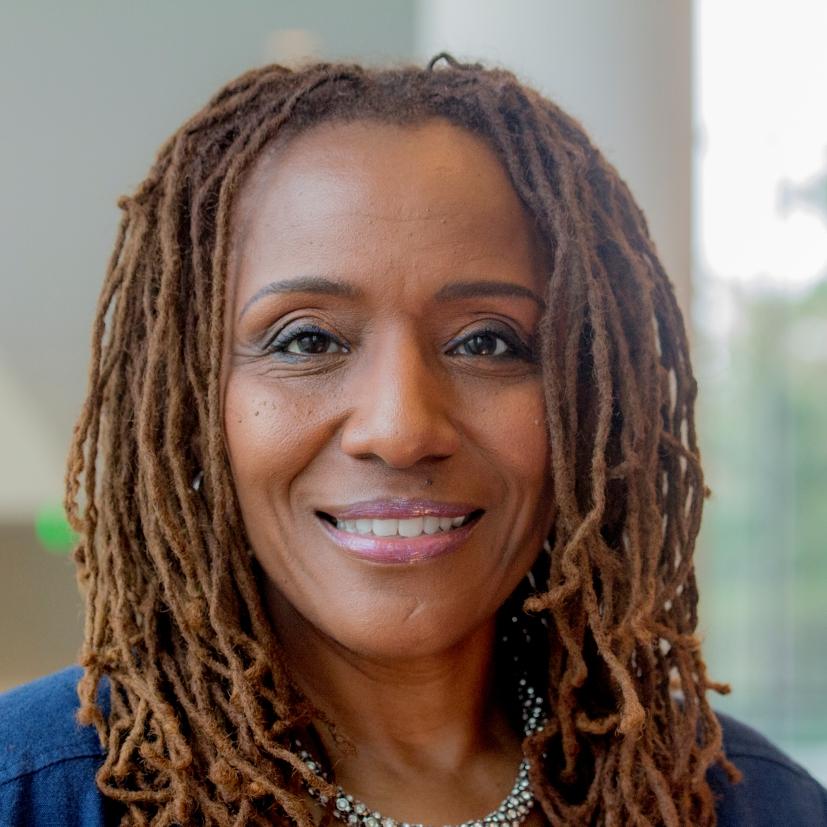
Upon completing high school, she didn't have a plan for what was next, so Wright decided to enroll in college. She said, “I signed up for classes and in that first year I worked a full-time job and got an apartment with a friend. However, in being a first-generation college student, I lacked the confidence, resources, and information to complete my degree. After my first year, I withdrew from college and focused on working, paying rent, bills and living the life of a 19-year-old trying to make it in Detroit.”
She continued, “After doing that for one year, I realized I did not want to be on that hamster wheel trying to live a life that had no true fulfillment or purpose. I found myself questioning what's next trying to figure out my plan B Being first-generation, I did not know how to look for resources within the university and no one told me that working a full-time job would be tough while trying to complete my education full time.”
As Wright was contemplating her next moves, a friend suggested that she relocate to Ohio, to get a free Associate's Degree from Tri-C by attending the Job Corps Cleveland program, which offered a small stipend and free residentialliving.
Wright moved to Cleveland, joined the program, and started her studies at Tri-C, but her hopes of completing her studies were put on pause. She explained, “I was disappointed that I did not get the degree because I was unable to complete the program within 2 years.” After leaving the program, she worked as a temporary clerk at Case Western Reserve University Bookstore. Six months later, her discipline, work ethic, and friendly personality led to an offer of a full-time position as Clerk at the Bookstore.
Wright also welcomed her first child, a son, after four years of marriage that later ended in a divorce. For that reason, she needed to make more money and provide for her son, so she decided to complete her bachelor's degree. She explained, “I started on this educational roller coaster trying to take classes while raising my son, working a fulltime job, and trying to have a social life. Education always took a backseat so if my job became too much, I quit education. If raising my son became overwhelming, I quit education. If I was dating and it took up too much time, I quit education. I never put education first because I never understood how important it would be until later in my life when I had a dedicated support system.”
For this hard-working woman, having a strong support system is a foundation for success. “When I got married a second time and had a baby girl, I was thinking education will take a backseat to my life once again however, my husband helped, supported, and knew I could do it. He wanted it for me.” She said, “Anytime I wanted to stop, he was there to encourage me while on the journey. When I found it to be overwhelming, he took care of the kids. If I needed to pull out to write a paper, to study, or to just practice for a presentation he was there to support me.” Without an adequate support system, “it is easy to withdraw and quit because you feel that you're only quitting on yourself however, when there is a support system, it makes it harder to pull out without explainingto others why.”
Having worked as a clerk at the bookstore, a secretary in the Student Activities Office within the Division of Student Affairs, she was now acquainted with the University's system, and she joined the Office of Minority Student Programs (Department Assistant) where she said, “My life went from a job to a career path.” She also learned more about the unique challenges faced by underrepresented students and worked hard towards her goal of ensuring, “every underrepresented student graduated from CWRU ” While she was working as a Coordinator in the Office of Multicultural Affairs, she earned her undergraduate degree.
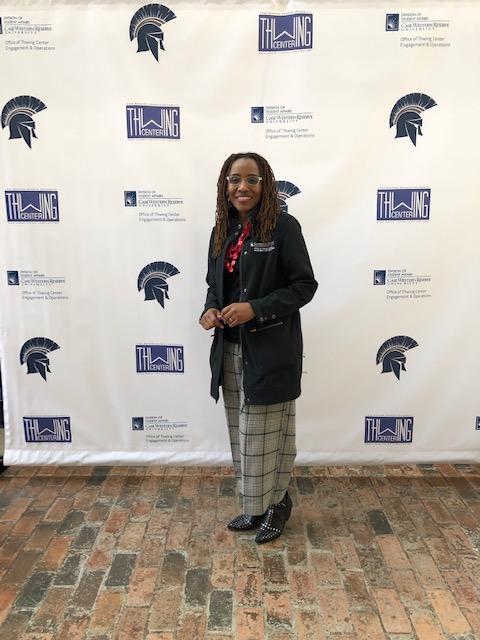
Wright then became Assistant Director in the Thwing Center, where in addition to discharging her responsibilities, she earned her master's degree. A year after completing her master's degree, she was promoted to the Director of Thwing Center Engagement & Operations. Wright has led the charge to breathe new life into the Thwing Center, through reimagining classrooms as multi-purpose student engagement spaces; ongoing updates to the Thwing Atrium; and the transformation of
the Excelsior Ballroom into a meeting and event space for both students and the community a capital project she helped bring to fruition. Today, the Thwing Center hosts weddings, conferences, parties, and dinners and it also has outdoor spaces for cookouts and social gatherings. During the academic year, student groups and departments utilize the Center, but during summer, fall and spring breaks, the center is open to everyone.
Wright oversees all aspects of the operations and engagement within the Division of Student Affairs Student Centers. This creates centralized support for all student organizations, campus departments and external clients who are hosting programs and events within the Student Centers as well as increases usage through engagement, promotional initiatives, marketing of spaces and services, and assessment of engagement. The Student Centers include Thwing Center, the repurpose Eldred Hall, Carlton Commons, Leutner Commons, The Spot, L3, Fireside Lounge and two outdoor spaces.
Her dedicated services spanning more than thirty-five years and her ensuing accomplishments have not been left unnoticed. Recently, Wright received the CWRU President's Award for Distinguished Service, an award set aside for exceptional staff. Some nominators wrote, “The energy, care and support Arlet demonstrates on a daily basis is unmatched,” “Her commitment to CWRU and the students we serve is authentic and evident in each interaction.” “Arlet is a student development pro who can coach, listen, teach, and guide those around her to identify and magnify the potential they hold inside. She is CWRU energy, and she makes us all shine on.”
Honored and humbled to receive the award, Wright noted, “Receiving the president's award for distinguished service was 35 years in the making. I say that because when I first came to CWRU, it was a job and over the years it has become a passion for not only graduating students but building working relationships with staff and faculty Understanding that the student experience is so important to one's development is why this recognition feels deserving at this time.” She continued, “This award shows my own personal development as it relates to how I see students, faculty and staff and it also shows how I've been able to connect the CWRU community through the use of space.”
While Wright has put in a lot of hard work, she concedes she could not have reached this level of success without mentors and those who believed in her. During her career, Wright has encountered both role models and detractors who doubted her skills and abilities. She reasons that, “When most people think about mentors, they think about the people who have influenced them in a positive way, and I think that is great. But I think about the mentors who didn't believe in me also and despite them not believing, it motivated me to complete college, to look for another job and to want more out of life. Keep in mind I am not calling them mentors, but I am calling them people who just couldn't see what I and others knew I had the capabilityof doing and despite the challenges, I did it.”
Speaking highly of her supportive husband, she said, “My strongest mentor and advisor has been my husband, David of 28 years. He has always been there for me to nurture me through my education, raising our children, and believing in me when I was sometimes in doubt or was afraid to take chances or certain positions because of feeling overwhelmed by the responsibility, thinking that I couldn't do it or thinking I was not qualified.”
Wright also appreciated the individuals at Case Western Reserve University who “tapped me on the shoulder and said, 'Have you thought about applying for this job or going back to school?' That was a promotion for me. Those are the people who I have a lot of respect for because they saw something in me at the time that I didn't always see in myself.” Mentors or tappers at CWRU at the time who saw something in her before she saw it in herself included Dave Johncock (CWRU Bookstore), Dr Dorothy Pijan (deceased) Casey Medley (retired), Dr. Kent J. Smith (President at Langston University), Maura O'BeirneStanko, AVP Susan Nickel-SchindeWolf (retired), Kristin Urig (Associate Director), along with VP of Student Affairs Lou Starks, her family, friends, students, and coworkers.
Grateful to these colleagues, Wright said, “Had these people not recognized me and my talents, I don't know professionally if I would be where I am today. For that I say thank you to everyone who tapped me on the shoulder and told me they saw something in me, so I would encourage any and everyone to work hard because you never know who is watching.”
With a decorated service of more than thirty-five years, Wright stresses the importance of having a plan in life. “What I have learned about life is that if you don't make a plan, life will make one for you. I have planned things out and it didn't work quite how I wanted it to, but the fact that I laid out a plan allowed me to bounce back faster and to make tweaks or adjustments to my plan.” She said, “Sometimes you have to throw it away and start it all over, but at least you can say you tried. When I made no plans and I allowed life to take over sometimes I didn't always like the outcome, and I had to live with it, but I did get the lesson and the lesson was to make a plan.”
She encourages everyone to be open and stay open for change and said, “We must be able to pivot in a moment's notice. I have had to work through things to get to the other side of where I am today, and I have accepted and love the woman I am today with all of her imperfections.”
From temporary clerk at the university bookstore to director of the Thwing Center and many roles in between—Arlet Wright has tirelessly worked to make Case Western Reserve University a better place. But there is more to come. Stay tuned! <
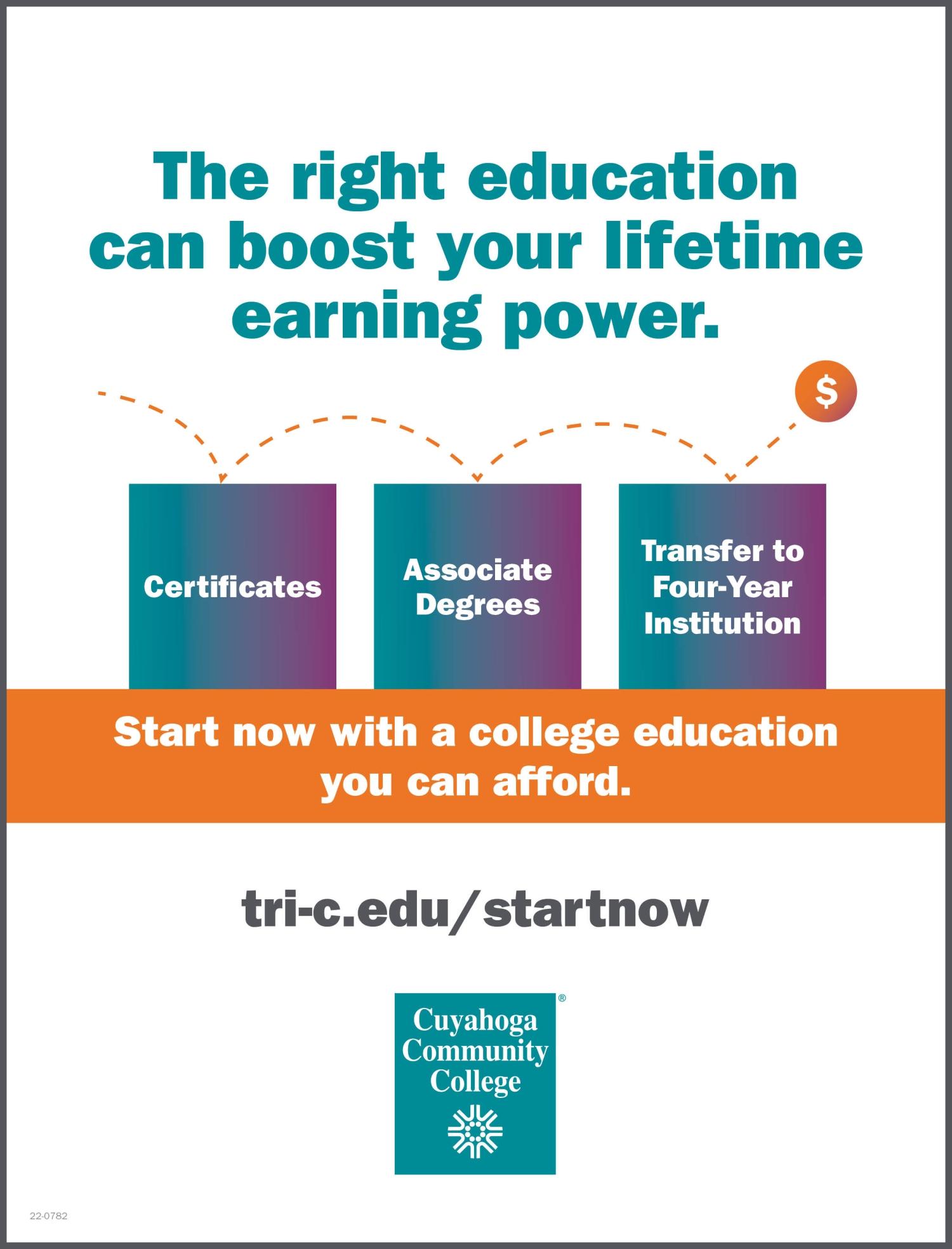






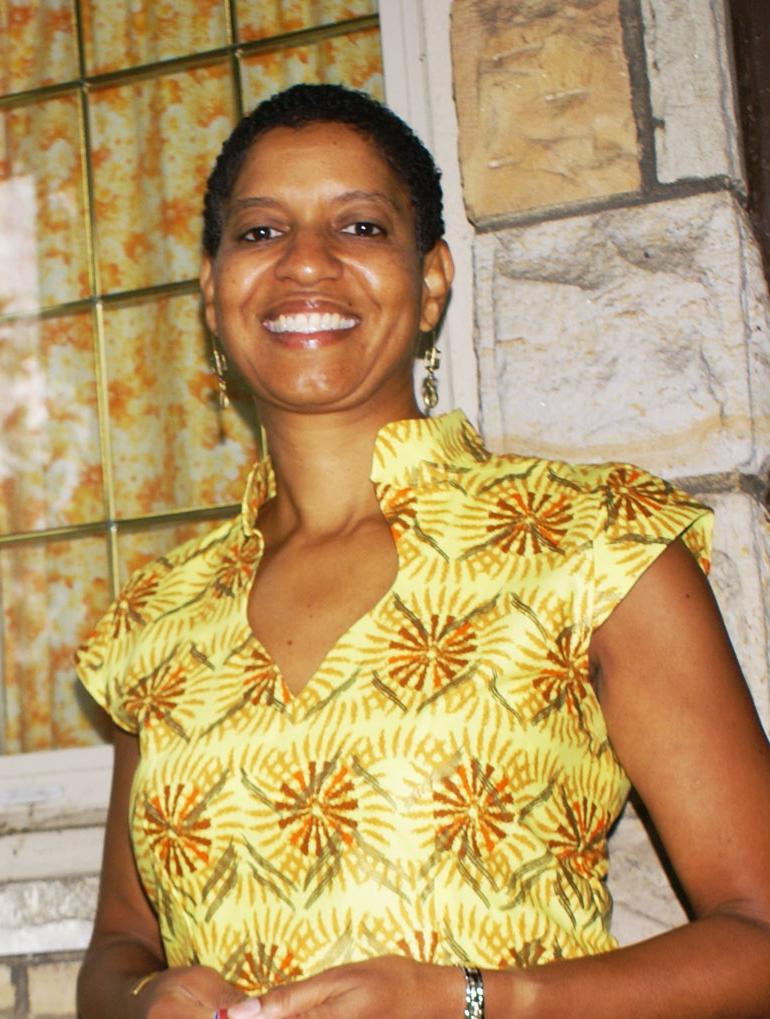
"If you're passionate about something and you want to make a difference, I guarantee there's a way to do that with engineering." Elizabeth Bierman
Seeing is believing, and in the science, technology, engineering, and math (STEM) field, Black and Brown people too often do not see themselves. This lack of visibility contributes to the lack of progress in diversifying careers in this space.
During a 2021 Pew Research Center focus group, a young woman's response to the question “What are your thoughts about jobs in science? In technology?” demonstrates how skewed the perception is of minorities in STEM: “It's definitely biased toward men, for sure, and it's also biased toward specifically White men, for sure. I know I have plenty of friends who have great ideas who are really smart, but they don't pursue science because they don't think that they'll be able to get ahead in the field because it's all dependent.”
Perceptions like this are at the heart of the work of Me'lani Labat Joseph, principal of Transformative Innovations, LLC. Labat Joseph is a Massachusetts Institute of Technology (MIT) trained mechanical engineer with a mind for STEM and a passion for bringing out the best in Black and Brown people. MIT, well positioned among the world's most prestigious universities, is currently ranked #1 for best undergraduate engineeringprogram.
Me'lani was commissioned by the Cleveland Foundation and the Nordson Corporation to prepare a landscape analysis of the key science, technology, engineering, and math providers in Greater Cleveland and Lorain County The report created from this analysis serves as a blueprint for area families, STEM providers and stakeholders, educational institutions, communities, civic leaders and businesses to focus on while working to diversify these fields.
Before examining the findings in the report, Phenomenal Woman sat down with Labat Joseph to gather insight into her journey and experiences in the world of STEM.
Me'lani Labat Joseph's life illustrates the importance of following your heart and passion when choosing your career. The early experiences in her life shaped her collegiate choices while ultimately allowing her to shift her
focus as she began her career. Labat Joseph grew up in California's San Francisco Bay area, an only child whose parents helped her feel loved and secure and also prepared her for greatness.
Labat Joseph has fond memories of her childhood and a great recollection of events as far back as attending preschool in Las Vegas with the children of casino workers and often playing card games. This experience she attributes to her high propensity for numbers. Coupled with a mom, she describes as “a deep thinker and always talking about outer space, math, and science,” making it no surprise that she would have a career in STEM.
Looking through the lens of Labat Joseph's life, she had privileges most of her target audience would long to experience. Not only did she have two parents offering guidance and unique activities, but at a young age, she traveled abroad, becoming a global citizenas a young girl.
She shared that her mother was a world traveler having visited Russia, Europe, and Cuba before living in Tanzania (East Africa). She remembers traveling to Cuba with her mom at the tender age of eight and living for six months in Tanzania. The latter experience would shape a decision later in life.
Despite these advantages, it is not lost on her that this is not the norm. In her report, “Towards Greater Equity in Science, Technology, Engineering and Math (STEM), she opens it by citing the existing contextual realities, writing, “The issues surrounding equity in STEM are complex and multi layered. There are numerous factors and considerations that need to be taken into account when assessing the landscape and determining how to disrupt the ingrained systems and circumstances that prevent Black and Brown students from accessing and succeeding in STEM areas.”
These realities are “Challenges with Basic Needs,” “Strategic Challenges,” and Issues of Race and Diversity.” Living in East Africa offered early insight into the inadequate conditions experienced by the villagers. She said of this time, “We lived in a little village about sixty kilometers north of Dar es Salaam, [then] capital of Tanzania. We had our own cement house, but I saw people with no running water, no irrigation systems, and no transportation systems. I remember vividly riding in Land Rovers, a common car navigating over very bumpyroads.”
This early view of the suffering of others helped to shape the heart of Me'lani, recalling the experience as “Impressionable on me. As I went through school, I thought I could be an engineer, and I could be an internationaldeveloper and help places like Tanzania.”
From her early immersion in math and science, Labat Joseph's path continued in that area when she reached high school. She attended Berkeley High School, situated blocks away from the University of California at Berkeley and home to one of the nation's best engineering schools. In high school, she participated in the Math Engineering Science Achievement (MESA) program designed to introduce minority students to potential careers in those areas. MESA was an after-school program with a relationship with UC Berkeley allowing students to become acclimated with college life on the university's campus. While attending the program she met Rich Hemphill, an instructor and MIT alumnus who saw her potential and suggested she apply to the east coast school.
Most women and minorities choosing careers in engineering and other STEM subjects recall being the only minority or one of less than 10 when they begin their collegiate careers. The 2021 Pew Research study supports that scenario reporting, “Black and Hispanic adults are underrepresented among STEM college graduates compared with their share in the population, and a smaller share are earning degrees in a STEM field than in other degree programs.”
Black students earned 7% of STEM bachelor's degrees as of 2018, the most recent year available, below their share of all bachelor's degrees (10%) or their share of the adult population (12%). The share of Hispanic college graduates with a STEM degree –12%– remains lower than that for all college graduates (15%) in 2018.”
Me'lani's collegiate years were the opposite. She said, “My year, we had one of the largest Black student classes. There were a lot of us, it did not feel isolating. There were

women, men and we were a really tight Black community at MIT when I went there.” This tight community was supplemented by a strong National Society of Black Engineers (NSBE) chapter where Labat Joseph was given the opportunity to network and interact with representatives of many companies, gaining insight on future opportunities.
Entering MIT, she had plans to study civil engineering because of her thoughts of building infrastructures, but the lack of diversity in that major prompted a change in majors. She said, “There was only one Black person I knew majoring in civil engineering and because civil and mechanical were similar, I went into mechanical engineering.” The change was good as she explained, “I had great, eye-opening work experiences. I worked for Hewlett-Packard after my freshman year. Another great thing about going to MIT is you have huge opportunities to work in the industry, and for the next two summers I worked for Honeywell Commercial Flight Systems Group in Arizona.”
Describing the experiences she said, “They were great experiences. For me, I decided that the engineering profession was not what I wanted to do. I was more of a community-oriented person and I wanted to be out of a building and develop relationships. For the engineers, I saw it was more of a cubicle, smaller team-oriented environment and you're working on a small piece of a big project. For me, I decided while I was still in undergraduate school at MIT that I did not want to be an engineer after I graduated, but I knew the incredible value of sticking with my engineering degree.”
After graduating from MIT, Labat Joseph had to determine what she would do next. Tapping again into her childhood and her love for community, she remembered growing up at a time when there was a lot of political activity, attending demonstrations and she remembers stuffing envelopes in the living room of then candidate Barbara Lee, now a 12th term U.S Representative. Those opportunities were her orientation into advocacy work and she said, “knowing that through action, you can make change. That's in my fiber, that's in my DNA and in my being. I've always had an interest in community”
Armed with this knowledge of what she believed she was called to do, Labat Joseph decided to look into public administration and public policy programs around the country and chose the University of Chicago for its public policy program and because she loved the city. This choice would lead to lifetime decisions, like meeting her future husband and gaining valuable work experience with the city of Chicago after completing her graduate degree program.
Labat Joseph worked as an assistant to Valerie Jarrett in the city of Chicago Planning Department where she had
an opportunity to see how cities operate and develop which would be beneficial for her plans to work in community development. After having her first child, she said, “something in me clicked and I decided to focus on youth,” which led to her work in STEM enrichment programs over the next 24 years.
After 14 years in Chicago, Labat Joseph's husband was offered a faculty position at Case Western Reserve University (CWRU) and the family, which includes three children, relocated to Cleveland. A few years after moving to Cleveland, she began working at CWRU. She said during her tenure at Case, “I was able to craft what I wanted to do, and since my passion was minoritycommunities that's what I spent 85% of my time doing. I designed STEM enrichment opportunities for pre-college youth in preK-12th grade to engage with Case's faculty, students and staff. Over the years, there have been literally thousands of youth that I have brought to and engaged through Case.”
In March, 2021 Labat Joseph left CWRU and began working full time on Transformative Innovations, LLC, her consulting firm with the goal of empowering young people and helping them to realize their maximum potential and promise. The equity report with the Cleveland Foundation and Nordson Corporation is her first project described as, “A long term partnership with the two organizations. This is going to take a long time to figure out how to change the access, engagement, and persistence of Black and Brown young people in STEM careers.”
In this first phase of the equity in STEM work, Labat Joseph gathered data by talking with more than 150 leaders in STEM and STEAM organizations, youth, stakeholders and funders. With the focus being STEM, it also recognizes that arts exposure and programming enhance the STEM learning experience.
The interviews and focus groups offer insights into a holistic approach to tackling the issues of providing diversity and equity in STEM. Some of the takeaways Labat Joseph found include the importance of all facets of a community working together.
I believe the school environment is critical. I believe in the power of educators and teachers in young people’s lives. I think in all the spaces where young people are, there have to be adults encouraging them and showing confidence in them to help them persist in a STEM career.
She said, “What I'm proposing in order to have true equity in STEM, we have to think about this as pre-natal, before the baby is born to early career. That is the kind of longterm support we need for Black and Brown young people to be confident and successful in a STEM career That is really rare. It has happened in my life. I was fortunate to have a mother who was living and breathing this STEM stuff and she infused it in me and she has supported me my entire life ” Continuing, she said, “I know that's not available to everyone, specifically Black and Brown people.”
With many families fighting just to keep food on tables, and lacking the educational exposure to understand the potential opportunities, she said, “I do feel like there has to be comfort among the adults in the young people's lives in math and science. I get it, life is hard, for Black people in particular because of the centuries of trauma and daily struggles of living in this country Getting your kid to a STEM program is maybe not foremost on your mind.”
While families are important and set the foundation for the early stages of learning, Labat Joseph does not leave the full burden in the home. She said, “I think that every institution that is engaging with young people is also very critical. I believe the school environment is critical. I believe in the power of educators and teachers in young people's lives. I think in all the spaces where young people are, there have to be adults encouraging them and showing confidence in them to help them persist in a STEM career.”
In the end Labat Joseph said, “It's going to take an awareness of everybody in the neighborhood, in the region, in the nation to go out of your way to make young people of color feel comfortable.” She will feel accomplished if her desire “to be a strategic thought partner with organizations to help them think about how they can maximize outcomes in youth,” is achieved.
When she's not seeking to change the color of STEM, Labat Joseph is active on civic boards and working in the community but her biggest joy is spending time with her husband and adult children. Much like her mother, she is a proponent of world travel, and a lover of arts and culture and playing tennis.<
§ Bachelor of Science Mechanical Engineering Massachusetts Institute of Technology
§ Master of Public Policy University of Chicago
§ Serves as Principal Transformative Innovations, LLC
§ Serves as Board Member, Advantage Cleveland Tennis and Education, A youth enrichment program
§ Serves as Advisory Member, REACH Program, University School
§ Serves as a Board Member, The Math Movement, A math enrichment program
§ Served as Director, Engineering, Leonard Gelfand STEM Center Case Western Reserve University
§ Served as Program Designer, North Star Collaborative, Laurel School
§ Served as Manager Sisters4Science Project Exploration
§ Served as Consultant The Field Museum of Natural History
§ Co-created the Case Anatomy Camp
§ Served as Board member, MIT Black Alumni Association
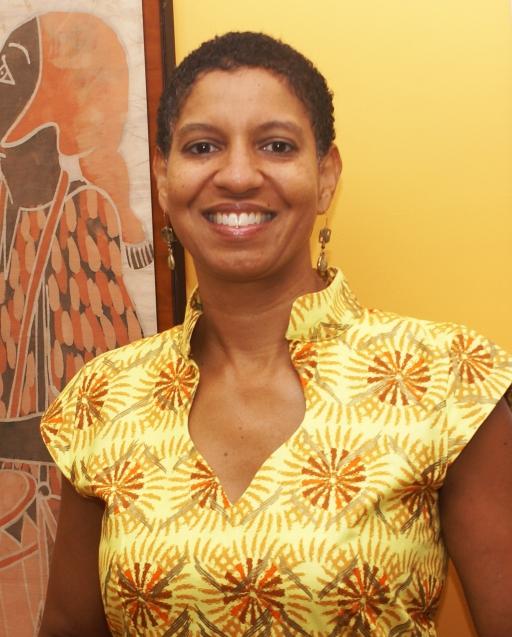
he National Endowment for the Humanities (NEH)
Tawarded a $173,680 grant to Ursuline College to host a NEH Summer Institute for higher education faculty. This June 2023 seminar, “Reading, Writing, and Teaching the Rust Belt: Co-creating Regional Humanities Ecosystems,” will bring 25 national scholars to Cleveland and the Ursuline campus to discover the best teaching practices for sharing the story of the Rust Belt.

“To teach the rise, fall and revival of the Rust Belt, you need to experience it,” states grant author Katharine Trostel, PhD, Ursuline assistant professor and English department chair “This prestigious NEH grant enables Cleveland to serve as the ultimate learning lab ”
Seminar participants will be immersed in Cleveland's history and culture through special field trips to Cleveland neighborhoods, iconic places like the West Side Market and new learning spaces such as EDWINS Leadership and Restaurant Institute. They will also participate in discussions generated by an extensive reading list featuring works from the locally-rooted Anisfield-Wolf Book Awards and from Belt, a Cleveland-based publisher of regional literature.
This reading list is the product of a previous NEH grant awarded to Ursuline, “Cleveland Divided: Rust Belt Revival Curriculum,” which allowed Dr. Trostel and other Ursuline faculty to develop an undergraduate certificate program called “The Rust Belt Pathway” The certificate program's curriculum serves as a foundation for the NEH summer institute and examines poverty, discrimination, neglect,
and population decline in the Rust Belt, as well as social solutions, all while reimagining the humanities through readings, discussions, digital skills, multi media presentations, mapping, and field trips. In addition to NEH, the College's Rust Belt Pathway is being supported in part by a Cleveland Foundation-funded Anisfield-Wolf Fellowship for the Public Humanities. The hope is to empower Ursuline students, most of whom are from Northeast Ohio and stay in the area after graduation, to participate in the Rust Belt's revival as community-based problem-solvers and critical thinkers.
Dr Trostel notes, “For too long, the Rust Belt narrative has been one of emptiness, decay, decline, and vacancy. Our stories are often neglected in the national sphere or controlled bycultural outsiders.”
She continues that this seminar, like the pathway course work, emphasizes the power of regionally based storytelling and the importance of uplifting local voices. Her hope is that the work from the seminar and its participants will result in the publication of a new teaching resource, Approaches to Teaching the Rust Belt.
“As a prototypical Rust Belt city, Cleveland and its inner ring suburbs include an array of distinct neighborhoods that are historically divided by ethnicity, race, and socioeconomic status, but our story is far from finished,” explains Dr. Trostel. “The more our students and students across the nation understand that story, the better they will be at writing its next chapter”







Between navigating stores, searching for items at the top of wish lists and preparing for inevitable delays and last minute requests, shopping for the holidays can make the most wonderful time of the year one of the most stressful times as well.

Even though the holidays seem to creep up faster and faster every year, and inflation adds an additional worry, there is still hope for your budget this season. To help reduce stress and avoid overspending on gifts, consider these money-saving tips from Regina Conway, consumer expert for Slikdeals, a one-of a-kind online community of shoppers working together to shop smarter and save more.
Avoid procrastinating. Due to shifting shopping habits, there may be excess inventory in certain categories such as home goods. While it's possible categories with extra inventory may see deep discounts later in the holiday season, don't expect every item you want to be available at the last minute.
Set your budget with hidden costs in mind. When setting budgets, many people stop at the number they think they'll spend on gifts alone. Make sure to factor in additional costs such as child or pet care services, shipping fees and travel costs so there are no surprises.
Tap into technology. Whether shopping for toys and technology or travel and home goods, starting your search by visiting a site like Slickdeals can help you find the best deals this holiday season. Deals from top retailers are vetted and voted on by a community of 12 million shoppers working together to save to help ensure you're getting the best products at the best prices. You can also set Deal Alerts to be notified when a deal matching your criteria gets posted.
Buy online, pick up in-store. Where available –including at many big box retailers – shopping online then picking up your purchases in-store (or curbside for even more convenience) can help you avoid paying shipping fees and confirm your items will arrive on time. Some retailers even offer exclusive discounts for curbside or instore pickup.
Take advantage of membership programs. If you haven't been a member before, many retailers that offer
memberships allow for free trials to test the perks, which often include free shipping. However, remember to cancel the trial before it auto-subscribes you for a full year. If you've previously done a trial, consider buying just a onemonth membership to take advantage of the benefits during the holiday shopping season.
Abandon your shopping cart. When shopping online, add items you're interested in to your cart, go through the check out process to the point where the retailer has your email address then simply close the browser or tab. Often, if you have not shopped from the site previously, the retailer will send you a discount code or coupon to incentivizeyour purchase decision.
Stockupondiscountedgiftcards. Taking advantage of discounted gift card sites is a simple way to save some cash on holiday purchases. Not only can you give a gift card you bought at a discount as a gift, you can also use it to shop. Just be sure not to overbuy or you may end up wasting unused cards.
Ask for a price match or adjustment. If you bought something and find a lower price within a week of that purchase, ask the retailer for a price adjustment. While this typically won't work with special promotions, many stores, both online and brick and mortar, will price match during the holiday season. If you're shopping in-store, take your smartphone with you and ask for the retailer to match online pricing, which can sometimes be a better deal. Asking for this match can save you time and money on shipping fees you might incur ordering online.
Check return policies. Many retailers offer extended return windows during the holiday shopping season. Make sure you look at the details of retailers' policies to ensure you understand how much time you have to make returns and don't have to pay return shipping or other unexpected costs.
Find more tips to get the best deals on holiday gifts at Slickdeals.net.
t's never too early to plan ahead, especially when you
Iare expecting guests in your home. Your family and friends know and might love your style, but it can be important to spice things up now and again to impress your visitors. Factors such as lights, music and food can affect your guests experience in your home.
To remain stylish and keep your party going, consider these tips for fun and festive home entertaining.
Staying organized is key while entertaining guests in your home. Try to plan out every detail before the big event, which can allow things to go more smoothly on the big day. As you think out your plan ahead of time, making lists can be a helpful way to stay organized and ensure you get everything done. List out your guests, what needs to be picked up from the store and possible decorations you might need to buy or craft yourself. The possibilities can seem endless, but it's important to have a plan in place before you start putting things together
There are numerous ways your style can be shown while entertaining. One way is to pick a theme or theme-related food dishes. One way to show your theme is through decorations. Placing them throughout your home can give the party some life and help guests get into the overall theme of the party.
Transforming your home can be made simpler by changing the lighting. It's typical for lights to be dimmed for parties to set a more relaxed mood. Other ideas include using candles, lamps or even hanging lanterns if you are entertaining outside. Make sure it's bright enough so everyone can see, but dimmed enough to set the mood for the evening's events.
Pick music that matches your theme and inspires that same feel throughout the house. If you're going for a fun, energetic atmosphere, try something with a quick tempo, such as pop If you're wanting to relax, go for subtler, soothing tones. Try making your playlist before you entertain and listen to it a few times through, that way you can know what to expect and how guests will react to your music selections.
Through all the anxiety and stress of entertainment planning, make sure you take time to enjoy yourself during the time guests are in your home. Some guests will notice if you're not having a good time. Smile and remember to be present in the moment.
Find more entertainmenttips at eLivingToday.com.



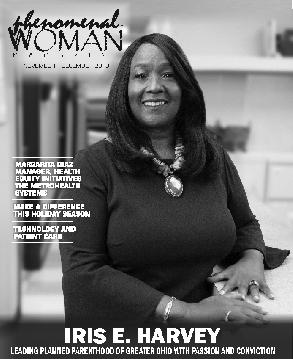
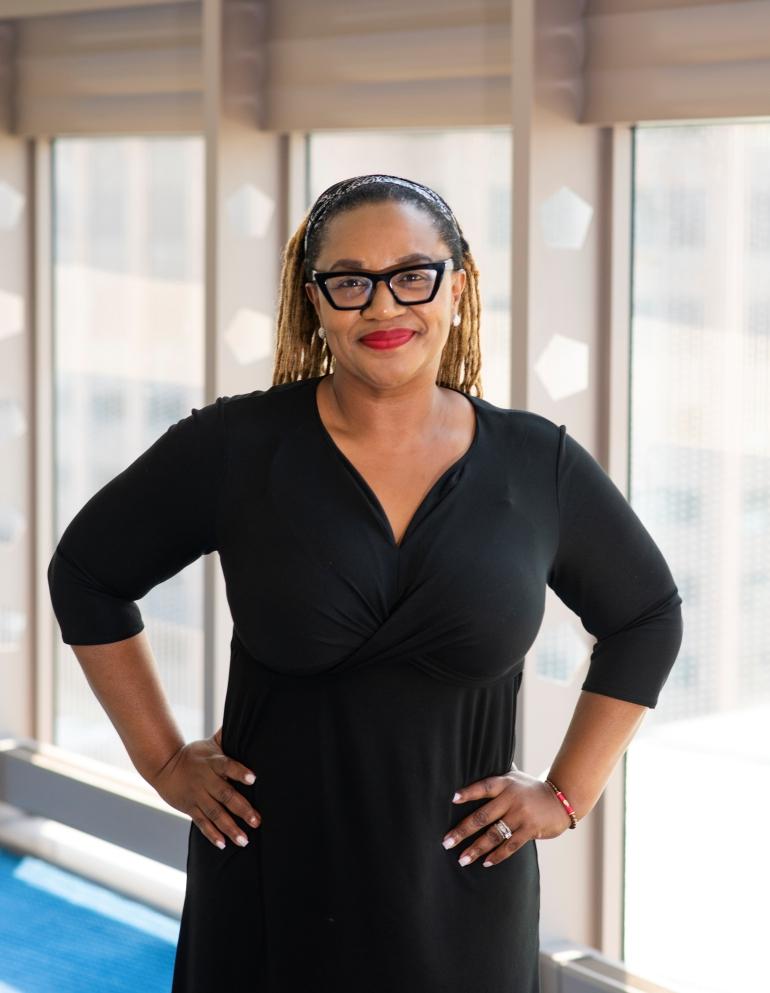
At Dominion East Ohio, going the distance for our customers means more than just delivering safe, affordable natural gas. It means being a positive force in the communities we serve. Our EnergyShare® program has raised $6.8 million and helped more than 70,000 people in Ohio alone. These resources, combined with more than 6,300 volunteer hours from our employees, have benefited organizations as diverse as the American Red Cross, the Boy Scouts of America and the Ohio & Erie Canalway Coalition.
